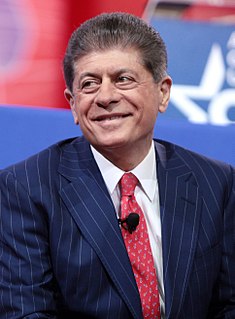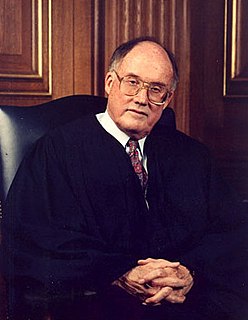A Quote by Clarence Thomas
If Congress can regulate this under the Commerce Clause, then it can regulate virtually anything-and the Federal Government is no longer one of limited and enumerated powers.
Related Quotes
Article I, Section 8, of the Constitution, of course, lays out the delegated, enumerated, and therefore limited powers of Congress. Only through a deliberate misreading of the general welfare and commerce clauses of the Constitution has the federal government been allowed to overreach its authority and extend its tendrils into every corner of civil society.
In explaining the Constitution, James Madison, the acknowledged father of the Constitution, wrote in Federalist Paper 45: 'The powers delegated by the proposed Constitution to the Federal government are few and defined. Those which are to remain in the State governments are numerous and indefinite. The former will be exercised principally on external objects, as war, peach, negotiation, and foreign commerce.' Has the Constitution been amended to permit Congress to tax, spend and regulate as it pleases or have Americans said, 'To hell with the Constitution'?
Conservatives who believe that the Constitution should be interpreted according to the plain meaning of its language and the original intent of the Framers have long been troubled by the court's decisions expanding the commerce clause to authorize Congress to regulate the most local of matters within a state's borders.

































